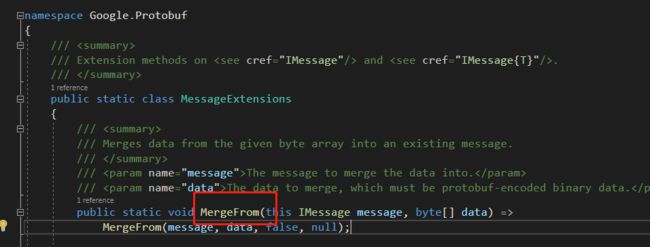- 关闭表单后再次打开时校验提示未清除
松岛的枫叶
vue.js前端javascript
在Vue+ElementUI中,若关闭表单后再次打开时校验提示未清除,可通过以下方案解决(结合搜索结果的实践经验):一、核心原因分析•校验状态缓存:ElementUI的表单校验状态(如红色边框和错误提示)不会随对话框关闭自动重置,需手动清理。•数据残留:若表单数据未正确初始化,旧数据可能触发残留校验规则。•DOM更新时序:直接调用resetFields()时,若表单DOM未完全渲染,可能导致方法失
- 【操作系统】Operating System Conceptions第二章知识整理总结
guozhirourou
OperatingSystemConceptions阅读OperatingSystemConceptions
小结:这几天我看了《OperatingSystemConceptions》的第二章。第二章先从用户、开发者以及计算机系统的角度开始,展示操作系统所提供的服务,继而讲解了操作系统是如何通过系统调用来为系统提供服务的,阐述一段程序是如何在系统中装入链接以及执行的。同时通过比较和对比整体、分层、微核、模块化和混合策略操作系统的不同设计,向我们展示了macOS、Android、Windows三种不同的操作
- Java基础9(throws和throw、异常细节)
孤影恋长风
java开发语言
throws和throw可能出现错误的代码写在try中e接受可能出现的异常,为了通用性一般不要写精确的异常,写最大的Exceptionthor抛出一个具体的异常,throw跟在函数之后,标志有异常抛出publicvoidtext(){如果这个函数将有异常处理,有两种策略,1.立即用try处理2.不处理,抛给调用此函数对象异常处理的原则,谁调用谁处理以后调用别人的函数,除了关注函数的参数,返回值,还
- TDengine 入坑
xijieyu
tdenginedockerlinux
的最近想折腾一个时序数据库,所以入坑了TDengine我的环境是WIN10+虚拟机ubuntu,开发语言是C#。在虚拟机里一开始使用docker来拉取TDengine镜像,后来发现docker的网络配置不熟,所以干脆直接在宿主机上安装TDengine直接使用。安装完了后,taos怎么都连接不上,显示"Unabletoestablishconnection",根据官方教程中的解释,一步一步排除各类连
- Visual Studio Code官网下载地址及使用技巧(含常用的拓展插件推荐)
ITCTCSDN
vscodeide编辑器
VisualStudioCode(简称“VSCode”)是Microsoft于2015年4月发布的可运行于MacOS、Windows和Linux之上的跨平台源代码编辑器,它具有对JavaScript,TypeScript和Node.js的内置支持,并具有丰富的其他语言(例如C++,C#,Java,Python,PHP,Go)和运行时(例如.NET和Unity)扩展的生态系统。VisualStudi
- C++函数返回多个值:结构体、tuple
@you_123
c++
C++函数一般可以返回一个值,但是在使用中常常需要一个函数返回多个值,因此可以使用结构体或tuple来进行实现。注意看代码里的注释!!!1.使用结构体返回多个值实现步骤:1.先定义一个结构体2.准备我们要实现的函数(需要返回多个值)3.在要实现的函数内调用结构体返回多个值4.使用函数返回结果代码示例:step1:定义结构体structPointStruct{floatwithout_floor;i
- 【CXX-Qt】2.5 继承
Source.Liu
CXX-Qtqtrustc++
某些QtAPI要求你从抽象基类中重写某些方法,例如QAbstractItemModel。为了支持直接从Rust中创建这样的子类,CXX-Qt提供了多种辅助工具。某些基类可能需要特殊的构造参数。这可以通过使用自定义构造函数来实现。访问基类方法要在Rust中访问基类的方法,请使用#[inherit]宏。它可以放在#[cxx_qt::bridge]中的extern“RustQt”块中的函数前面。exte
- C#进阶之路:揭秘反序列化漏洞与解决方案
计算机学长
开发工具C#web安全网络c#
一、引言在现代软件开发中,数据的持久化和传输是至关重要的环节。C#作为一种广泛使用的编程语言,其序列化与反序列化机制在这两个环节中扮演着不可或缺的角色。序列化,是将对象的状态信息转换为可以存储或传输的形式的过程,比如将对象转换为字节流、JSON字符串或者XML格式。而反序列化则是将这些序列化后的数据重新转换回原始对象的过程。在实际应用中,当我们需要将对象保存到文件系统、数据库,或者通过网络在不同的
- C# 技术使用笔记:Asp.Net Core MVC 中控制器 Controllers 中返回数据使用详解
caifox菜狐狸
C#技术使用笔记c#笔记asp.netcoreViewResultJsonResultRedirect控制器
本文将深入探讨ASP.NETCoreMVC控制器中返回数据的多种方式,从基础的ViewResult到灵活的IActionResult,再到强大的ActionResult,我们将逐一剖析它们的使用场景、优缺点以及最佳实践。通过丰富的代码示例和详细的解释,帮助读者全面掌握控制器返回数据的技巧,从而提升开发效率,构建更加健壮和高效的Web应用程序。无论你是初学者还是有一定经验的开发者,本文都将为你提供有
- 大疆C++开发面试题及参考答案
大模型大数据攻城狮
信号量C++面试C++面经堆和栈TCP和UDP智能指针C++11
虚函数的作用是什么?虚函数机制是如何实现的?虚表指针在内存中的存放位置在哪里?虚函数主要用于实现多态性。多态是面向对象编程中的一个重要概念,它允许通过基类指针或引用调用派生类中重写的函数。这样可以在运行时根据对象的实际类型来确定调用哪个函数,增强了程序的灵活性和可扩展性。在实现虚函数机制方面,C++使用了虚函数表(v-table)。当一个类包含虚函数时,编译器会为这个类创建一个虚函数表。虚函数表是
- 通信之OTDR
玖Yee
信息与通信
OTDR,即光时域反射仪,是光纤测量中最主要的仪器,被广泛应用于光纤光缆工程的测量、施工、维护及验收工作中,形象地被称为光通信中的“万用表”。工作原理OTDR利用光纤传输通道存在的瑞利散射和菲涅尔反射特性,通过监测瑞利散射的反向散射光的轨迹制成。它向被测光纤发送一光脉冲,光脉冲在光纤本身及各特征点上会有光信号反射回OTDR,反射回的光信号又通过定向耦合到OTDR的接收器,并在这里转换成电信号,最终
- html脚本语言有哪些,常见的脚本语言(有哪些)
神神九十九
html脚本语言有哪些
常见的脚本语言脚本言语:脚本言语又被称为扩建的言语,或者动态言语,是一种编程言语,用bai来操控软件应用程序,脚本通常以文本(如ASCII)保存,只在被调用时进行解说或编译。言语分类:Shell脚本:此类脚本用于自动化工作操控,即发动和操控体系程序的行为。大多的脚本言语解说器也一起是命令行界面,如Unixshell和MS-DOSCOMMAND.COM。其他如AppleScript,可以为体系添加脚
- 20190626_二次开发BarTender打印机_C#代码_一边读取TID_一边打印_打印机POSTEK
weixin_30784141
c/c++数据库
demo代码如下:privatevoidbtnPrint_Click(objectsender,EventArgse){if(this.btnPrint.Text=="停止打印"){SetBtnPrintUIEnable();return;}//禁用界面上的相关按钮SetBtnPrintUIDisable();vardt=newDataTable();newTask(()=>{///开始的打印//
- java:实现设置窗体背景颜色为淡蓝色(附带源码)
Katie。
Java实战项目java信息可视化开发语言
一、项目简介在桌面应用开发中,窗体背景颜色作为界面设计的重要组成部分,不仅影响整体美观,还能传递特定的情感和品牌信息。本项目旨在使用JavaSwing简单实现将窗体背景颜色设置为淡蓝色效果。该示例展示了如何创建一个基本的JFrame,并通过调用其内容面板的setBackground()方法,设置背景颜色为淡蓝色(RGB值173,216,230)。通过本项目,初学者可以了解Swing基本组件的使用方
- 使用欧拉法数值求解微分方程的 Python 实现
神经网络15044
python深度学习算法python开发语言
编写函数y=Eular(x,h),使用欧拉法数值求解微分方程初值为函数Eular(x,h)中Cx为计算结束时微分方程x的值,h为计算步长再编写脚本,通过调用函数分别以不同步长(例如h=1.0,h=0.5,h=0.25)计算y(3),并分析步长和误差之间的关系。以下是使用欧拉法数值求解微分方程的Python实现。假设我们要求解的微分方程是dydx=f(x,y)\frac{dy}{dx}=f(x,y)
- 在LwIP中,`tcp_recved()`、`tcp_sndbuf()` 和 `tcp_write()`三个函数详细用法及示例
矿渣渣
LWIPtcp/ip网络网络协议
在LwIP中,tcp_recved()、tcp_sndbuf()和tcp_write()是TCP协议栈的核心函数,用于管理接收和发送数据流。以下是它们的详细用法及示例:1.tcp_recved()功能通知协议栈已处理接收数据:当应用层从接收缓冲区读取数据后,需调用此函数更新TCP接收窗口(WindowSize),允许对端继续发送数据。流量控制:避免接收缓冲区溢出,确保TCP滑动窗口机制正常工作。函
- 如何使用LABVIEW调用BarTender的子程序:Bartender API调用测试,LABVIEW高效调用BarTender子程序的Bartender API实践
QZtcYmIYnDal
labview程序人生
BartenderAPI的调用本测试是LABVIEW怎么调用BarTender的子程序,可供调用。ID:89200597584724364行走的CdBartenderAPI的调用在软件开发领域,集成不同系统或工具的功能已经成为常见的需求。而在某些特定的行业或领域,如标签打印和条码管理,BarTender是一款备受欢迎的软件。BarTender作为一种强大的标签和条码设计与打印解决方案,能够满足各种
- 前端实例:轮播图效果
2301_81535770
前端
利用HTML、CSS和JavaScript实现轮播图效果。一、轮播图原理:通过给窗口设置position属性和overflow属性,使得超出窗口范围的部分被隐藏,表面可见范围只包含窗口,但实际上其内部空间很大;调整胶卷相对于窗口的位置,使得整个胶卷向左移动;调用JS中的定时器,实现轮播效果。流程图如下:二、实现自动切换效果1、HTML搭建基础框架分为图片展示窗口和上下页切换按键两部分>2、CSS设
- boost::string_ref使用详解
小米的修行之路
Boost库booststring_ref
1、string_ref不分配内存,不对字符串进行拷贝,通过其内部的两个成员变量ptr_和len_标记字符串的起始位置和字符串的长度,实现了字符串的表示,所以效率很高。2、一般情况下,我们使用string_ref只是去观察字符串,而不是去修改字符串。3、在使用string_ref期间,我们应该保证被引用的原始字符串对象可用,不能销毁。如果我们确实需要持有字符串,可以调用成员函数to_string(
- k8s--集群内的pod调用集群外的服务
IT艺术家-rookie
k8s与docker容器技术kubernetes容器云原生
关于如何让同一个局域网内的Kubernetes服务的Pod访问同一局域网中的电脑上的服务。可能的解决方案包括使用ClusterIP、NodePort、HeadlessService、HostNetwork、ExternalIPs,或者直接使用Pod网络。每种方法都有不同的适用场景,需要逐一分析。例如,ClusterIP是默认的,只能在集群内部访问,所以可能需要其他方式。NodePort会在每个节点
- 百度地图开放平台Key值申请
前端熊猫
百度地图开发平台AK
百度地图开放平台key值获取流程首先,登录需选择个人或者企业实名认证进入百度地图开放平台,点击右上角的控制台,进入开发者管理界面:选择应用管理->我的应用,点击创建应用,填写服务端:需设置IP白名单(安全性更高)或者浏览器端:需配置Referer白名单(防止恶意调用),获取测试key!!!在“我的应用”列表中,可查看并复制AK
- 动作捕捉手套如何让虚拟现实人机交互 “触手可及”?
广州虚拟动力-动捕&虚拟主播
VR手套数据手套动捕手套动捕数据手套
在虚拟与现实逐渐交融的当下,动作捕捉技术正以前所未有的速度革新着多个领域。动作捕捉技术,简称“动捕”,已经从早期的影视特效制作,逐步拓展到游戏开发、虚拟现实、机器人控制等多个领域。而mHandPrO数据手套作为这一领域的新兴力量,正以其实时、精准的动作捕捉能力,为用户带来全新的交互体验。其内置的感应节点、震动器和反馈装置,能够精准捕捉手部的细微动作,并实时转化为虚拟空间中的自然、流畅互动。在VR娱
- 封装Socket编程接口
南林yan
Linux学习网络linux服务器
一、Socket编程接口与TCP/UDP的关系Socket是网路通信接口,介于传输层和应用层之间,其封装了传输层的TCP/UDP协议以及网络层的IP协议,允许开发者通过调用编程接口选择使用TCP或UDP协议来实现不同的通信需求。TCP协议特点:面向连接:通过三次握手建立连接(第一次握手:客户端调用connect函数向服务端申请建立连接;第二次握手:服务端处于监听状态,接收客户端的连接;第三次握手:
- 基于STC89C52的8255并行口拓展实验
@小张要努力
mongodb数据库学习单片机proteus嵌入式硬件51单片机
摘要本文围绕基于STC89C52单片机的8255并行口扩展实验展开,详细阐述实验原理、硬件设计、软件编程及Proteus仿真实现过程。通过扩展8255芯片,实现单片机I/O口资源的灵活应用,完成对LED阵列的控制,验证8255并行口扩展在单片机系统中的实用性,为单片机外围接口扩展应用提供实践参考。一、引言STC89C52作为经典的51系列单片机,在工业控制、嵌入式系统等领域应用广泛。然而,其内部I
- 【技巧分享】开发环境配置Python、R、Stata
A线上仓库
python开发语言
自用,看心情更新~版本更新2024-03-131.0版本2024-09-25FIX:1.conda命令ADD:1.python调用r命令2.r系统配置2025-01-22更新VSCode调用Statado文件目录版本更新Python环境配置Cheatsheet基础配置可选:环境配置:conda命令包管理R环境配置基础配置R命令Python调用Method1:`rpy2`Stata环境配置基础配置P
- AsyncHttpClient使用说明书
有梦想的攻城狮
netty学习专栏Javaasynchttpclient异步处理netty
[[toc]]AsyncHttpClient(AHC)是一个高性能、异步的HTTP客户端库,广泛用于Java和Scala应用中,特别适合处理高并发、非阻塞的HTTP请求。它基于Netty或Java原生的异步HTTP客户端实现,支持HTTP/1.1和HTTP/2协议,适用于微服务、API调用、爬虫等场景。1.核心特性特性说明异步非阻塞基于事件驱动模型,避免线程阻塞,支持高并发(如每秒数千请求)。HT
- 协议层攻防战:群联AI云防护为何比传统方案更精准?
群联云防护小杜
安全问题汇总人工智能tcp/ip网络协议网络安全
一、四层/七层攻击防御的核心挑战协议层攻击类型传统方案缺陷四层SYNFlood、UDP反射依赖硬件清洗,误封合法流量七层HTTPCC、SQL注入规则静态,无法适应新型攻击二、群联的协议层定制防御技术1.四层协议防护:智能动态指纹技术原理:基于AI分析TCP/UDP流量特征,动态生成协议指纹库,识别伪造源IP的畸形包。文档引用:“防护模块灵活,支持定制版防护模块,适用于非网站业务”。配置示例:#动态
- 四层协议攻防手册:从SYN Flood到UDP反射的深度防御
群联云防护小杜
安全问题汇总udp网络网络协议服务器爬虫运维web安全
一、四层协议攻击类型与特征攻击类型协议层特征SYNFloodTCP大量半开连接,SYN_RECV状态堆积UDP反射放大UDP小请求包触发大响应(如NTP、DNS响应)TCP分片攻击TCP发送异常分片耗尽重组资源连接耗尽攻击TCP建立大量空闲连接占用端口资源二、TCP层定制防御方案1.SYNCookie防护(内核参数优化)#启用SYNCookieecho1>/proc/sys/net/ipv4/tc
- RestTemplate和RPC区别
酷爱码
经验分享rpc网络协议网络
RestTemplate是Spring框架中用于进行RESTful风格的HTTP请求的模板类,通常用于与外部服务进行通信。它基于HTTP协议,使用GET、POST、PUT、DELETE等HTTP方法来进行通信,传输的数据通常使用JSON或XML格式。它是一种基于资源的通信方式,通过URL来标识资源。RPC(RemoteProcedureCall)是一种远程过程调用的通信机制,用于不同进程或不同主机
- 从边缘到核心:群联云防护如何重新定义安全加速边界?
群联云防护小杜
安全问题汇总安全分布式ddos前端node.jsudp
一、安全能力的全方位碾压1.协议层深度防护四层防御:动态过滤畸形TCP/UDP包(如SYNFlood),传统CDN仅限速率控制。技术示例:基于AI的协议指纹分析,拦截异常连接模式。七层防御:精准识别业务逻辑攻击(如薅羊毛API调用),CDN仅支持基础URL黑名单。文档引用:“支持基于HTTP头部字段的多条件组合精准访问控制”(产品文档)。2.资源调度与成本优势节点复用:群联共享节点池降低单客户成本
- ztree异步加载
3213213333332132
JavaScriptAjaxjsonWebztree
相信新手用ztree的时候,对异步加载会有些困惑,我开始的时候也是看了API花了些时间才搞定了异步加载,在这里分享给大家。
我后台代码生成的是json格式的数据,数据大家按各自的需求生成,这里只给出前端的代码。
设置setting,这里只关注async属性的配置
var setting = {
//异步加载配置
- thirft rpc 具体调用流程
BlueSkator
中间件rpcthrift
Thrift调用过程中,Thrift客户端和服务器之间主要用到传输层类、协议层类和处理类三个主要的核心类,这三个类的相互协作共同完成rpc的整个调用过程。在调用过程中将按照以下顺序进行协同工作:
(1) 将客户端程序调用的函数名和参数传递给协议层(TProtocol),协议
- 异或运算推导, 交换数据
dcj3sjt126com
PHP异或^
/*
* 5 0101
* 9 1010
*
* 5 ^ 5
* 0101
* 0101
* -----
* 0000
* 得出第一个规律: 相同的数进行异或, 结果是0
*
* 9 ^ 5 ^ 6
* 1010
* 0101
* ----
* 1111
*
* 1111
* 0110
* ----
* 1001
- 事件源对象
周华华
JavaScript
<!DOCTYPE html PUBLIC "-//W3C//DTD XHTML 1.0 Transitional//EN" "http://www.w3.org/TR/xhtml1/DTD/xhtml1-transitional.dtd">
<html xmlns="http://www.w3.org/1999/xhtml&q
- MySql配置及相关命令
g21121
mysql
MySQL安装完毕后我们需要对它进行一些设置及性能优化,主要包括字符集设置,启动设置,连接优化,表优化,分区优化等等。
一 修改MySQL密码及用户
- [简单]poi删除excel 2007超链接
53873039oycg
Excel
采用解析sheet.xml方式删除超链接,缺点是要打开文件2次,代码如下:
public void removeExcel2007AllHyperLink(String filePath) throws Exception {
OPCPackage ocPkg = OPCPac
- Struts2添加 open flash chart
云端月影
准备以下开源项目:
1. Struts 2.1.6
2. Open Flash Chart 2 Version 2 Lug Wyrm Charmer (28th, July 2009)
3. jofc2,这东西不知道是没做好还是什么意思,好像和ofc2不怎么匹配,最好下源码,有什么问题直接改。
4. log4j
用eclipse新建动态网站,取名OFC2Demo,将Struts2 l
- spring包详解
aijuans
spring
下载的spring包中文件及各种包众多,在项目中往往只有部分是我们必须的,如果不清楚什么时候需要什么包的话,看看下面就知道了。 aspectj目录下是在Spring框架下使用aspectj的源代码和测试程序文件。Aspectj是java最早的提供AOP的应用框架。 dist 目录下是Spring 的发布包,关于发布包下面会详细进行说明。 docs&nb
- 网站推广之seo概念
antonyup_2006
算法Web应用服务器搜索引擎Google
持续开发一年多的b2c网站终于在08年10月23日上线了。作为开发人员的我在修改bug的同时,准备了解下网站的推广分析策略。
所谓网站推广,目的在于让尽可能多的潜在用户了解并访问网站,通过网站获得有关产品和服务等信息,为最终形成购买决策提供支持。
网站推广策略有很多,seo,email,adv
- 单例模式,sql注入,序列
百合不是茶
单例模式序列sql注入预编译
序列在前面写过有关的博客,也有过总结,但是今天在做一个JDBC操作数据库的相关内容时 需要使用序列创建一个自增长的字段 居然不会了,所以将序列写在本篇的前面
1,序列是一个保存数据连续的增长的一种方式;
序列的创建;
CREATE SEQUENCE seq_pro
2 INCREMENT BY 1 -- 每次加几个
3
- Mockito单元测试实例
bijian1013
单元测试mockito
Mockito单元测试实例:
public class SettingServiceTest {
private List<PersonDTO> personList = new ArrayList<PersonDTO>();
@InjectMocks
private SettingPojoService settin
- 精通Oracle10编程SQL(9)使用游标
bijian1013
oracle数据库plsql
/*
*使用游标
*/
--显示游标
--在显式游标中使用FETCH...INTO语句
DECLARE
CURSOR emp_cursor is
select ename,sal from emp where deptno=1;
v_ename emp.ename%TYPE;
v_sal emp.sal%TYPE;
begin
ope
- 【Java语言】动态代理
bit1129
java语言
JDK接口动态代理
JDK自带的动态代理通过动态的根据接口生成字节码(实现接口的一个具体类)的方式,为接口的实现类提供代理。被代理的对象和代理对象通过InvocationHandler建立关联
package com.tom;
import com.tom.model.User;
import com.tom.service.IUserService;
- Java通信之URL通信基础
白糖_
javajdkwebservice网络协议ITeye
java对网络通信以及提供了比较全面的jdk支持,java.net包能让程序员直接在程序中实现网络通信。
在技术日新月异的现在,我们能通过很多方式实现数据通信,比如webservice、url通信、socket通信等等,今天简单介绍下URL通信。
学习准备:建议首先学习java的IO基础知识
URL是统一资源定位器的简写,URL可以访问Internet和www,可以通过url
- 博弈Java讲义 - Java线程同步 (1)
boyitech
java多线程同步锁
在并发编程中经常会碰到多个执行线程共享资源的问题。例如多个线程同时读写文件,共用数据库连接,全局的计数器等。如果不处理好多线程之间的同步问题很容易引起状态不一致或者其他的错误。
同步不仅可以阻止一个线程看到对象处于不一致的状态,它还可以保证进入同步方法或者块的每个线程,都看到由同一锁保护的之前所有的修改结果。处理同步的关键就是要正确的识别临界条件(cri
- java-给定字符串,删除开始和结尾处的空格,并将中间的多个连续的空格合并成一个。
bylijinnan
java
public class DeleteExtraSpace {
/**
* 题目:给定字符串,删除开始和结尾处的空格,并将中间的多个连续的空格合并成一个。
* 方法1.用已有的String类的trim和replaceAll方法
* 方法2.全部用正则表达式,这个我不熟
* 方法3.“重新发明轮子”,从头遍历一次
*/
public static v
- An error has occurred.See the log file错误解决!
Kai_Ge
MyEclipse
今天早上打开MyEclipse时,自动关闭!弹出An error has occurred.See the log file错误提示!
很郁闷昨天启动和关闭还好着!!!打开几次依然报此错误,确定不是眼花了!
打开日志文件!找到当日错误文件内容:
--------------------------------------------------------------------------
- [矿业与工业]修建一个空间矿床开采站要多少钱?
comsci
地球上的钛金属矿藏已经接近枯竭...........
我们在冥王星的一颗卫星上面发现一些具有开采价值的矿床.....
那么,现在要编制一个预算,提交给财政部门..
- 解析Google Map Routes
dai_lm
google api
为了获得从A点到B点的路劲,经常会使用Google提供的API,例如
[url]
http://maps.googleapis.com/maps/api/directions/json?origin=40.7144,-74.0060&destination=47.6063,-122.3204&sensor=false
[/url]
从返回的结果上,大致可以了解应该怎么走,但
- SQL还有多少“理所应当”?
datamachine
sql
转贴存档,原帖地址:http://blog.chinaunix.net/uid-29242841-id-3968998.html、http://blog.chinaunix.net/uid-29242841-id-3971046.html!
------------------------------------华丽的分割线--------------------------------
- Yii使用Ajax验证时,如何设置某些字段不需要验证
dcj3sjt126com
Ajaxyii
经常像你注册页面,你可能非常希望只需要Ajax去验证用户名和Email,而不需要使用Ajax再去验证密码,默认如果你使用Yii 内置的ajax验证Form,例如:
$form=$this->beginWidget('CActiveForm', array( 'id'=>'usuario-form',&
- 使用git同步网站代码
dcj3sjt126com
crontabgit
转自:http://ued.ctrip.com/blog/?p=3646?tn=gongxinjun.com
管理一网站,最开始使用的虚拟空间,采用提供商支持的ftp上传网站文件,后换用vps,vps可以自己搭建ftp的,但是懒得搞,直接使用scp传输文件到服务器,现在需要更新文件到服务器,使用scp真的很烦。发现本人就职的公司,采用的git+rsync的方式来管理、同步代码,遂
- sql基本操作
蕃薯耀
sqlsql基本操作sql常用操作
sql基本操作
>>>>>>>>>>>>>>>>>>>>>>>>>>>>>>>>>>>>
蕃薯耀 2015年6月1日 17:30:33 星期一
&
- Spring4+Hibernate4+Atomikos3.3多数据源事务管理
hanqunfeng
Hibernate4
Spring3+后不再对JTOM提供支持,所以可以改用Atomikos管理多数据源事务。Spring2.5+Hibernate3+JTOM参考:http://hanqunfeng.iteye.com/blog/1554251Atomikos官网网站:http://www.atomikos.com/ 一.pom.xml
<dependency>
<
- jquery中两个值得注意的方法one()和trigger()方法
jackyrong
trigger
在jquery中,有两个值得注意但容易忽视的方法,分别是one()方法和trigger()方法,这是从国内作者<<jquery权威指南》一书中看到不错的介绍
1) one方法
one方法的功能是让所选定的元素绑定一个仅触发一次的处理函数,格式为
one(type,${data},fn)
&nb
- 拿工资不仅仅是让你写代码的
lampcy
工作面试咨询
这是我对团队每个新进员工说的第一件事情。这句话的意思是,我并不关心你是如何快速完成任务的,哪怕代码很差,只要它像救生艇通气门一样管用就行。这句话也是我最喜欢的座右铭之一。
这个说法其实很合理:我们的工作是思考客户提出的问题,然后制定解决方案。思考第一,代码第二,公司请我们的最终目的不是写代码,而是想出解决方案。
话粗理不粗。
付你薪水不是让你来思考的,也不是让你来写代码的,你的目的是交付产品
- 架构师之对象操作----------对象的效率复制和判断是否全为空
nannan408
架构师
1.前言。
如题。
2.代码。
(1)对象的复制,比spring的beanCopier在大并发下效率要高,利用net.sf.cglib.beans.BeanCopier
Src src=new Src();
BeanCopier beanCopier = BeanCopier.create(Src.class, Des.class, false);
- ajax 被缓存的解决方案
Rainbow702
JavaScriptjqueryAjaxcache缓存
使用jquery的ajax来发送请求进行局部刷新画面,各位可能都做过。
今天碰到一个奇怪的现象,就是,同一个ajax请求,在chrome中,不论发送多少次,都可以发送至服务器端,而不会被缓存。但是,换成在IE下的时候,发现,同一个ajax请求,会发生被缓存的情况,只有第一次才会被发送至服务器端,之后的不会再被发送。郁闷。
解决方法如下:
① 直接使用 JQuery提供的 “cache”参数,
- 修改date.toLocaleString()的警告
tntxia
String
我们在写程序的时候,经常要查看时间,所以我们经常会用到date.toLocaleString(),但是date.toLocaleString()是一个过时 的API,代替的方法如下:
package com.tntxia.htmlmaker.util;
import java.text.SimpleDateFormat;
import java.util.
- 项目完成后的小总结
xiaomiya
js总结项目
项目完成了,突然想做个总结但是有点无从下手了。
做之前对于客户端给的接口很模式。然而定义好了格式要求就如此的愉快了。
先说说项目主要实现的功能吧
1,按键精灵
2,获取行情数据
3,各种input输入条件判断
4,发送数据(有json格式和string格式)
5,获取预警条件列表和预警结果列表,
6,排序,
7,预警结果分页获取
8,导出文件(excel,text等)
9,修


